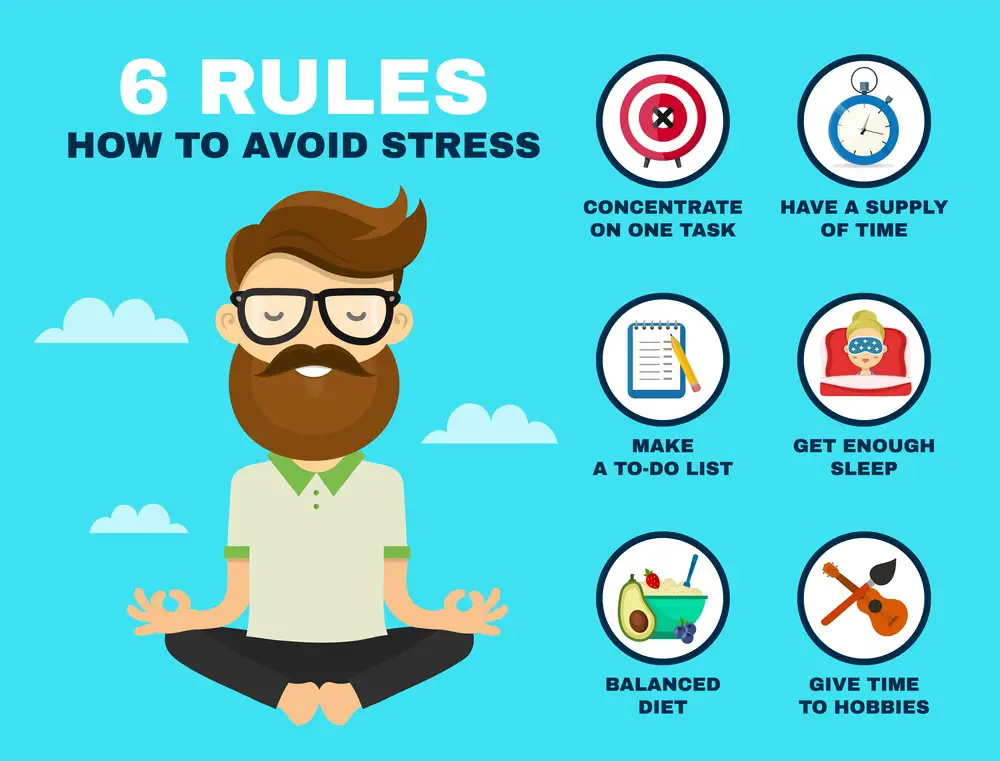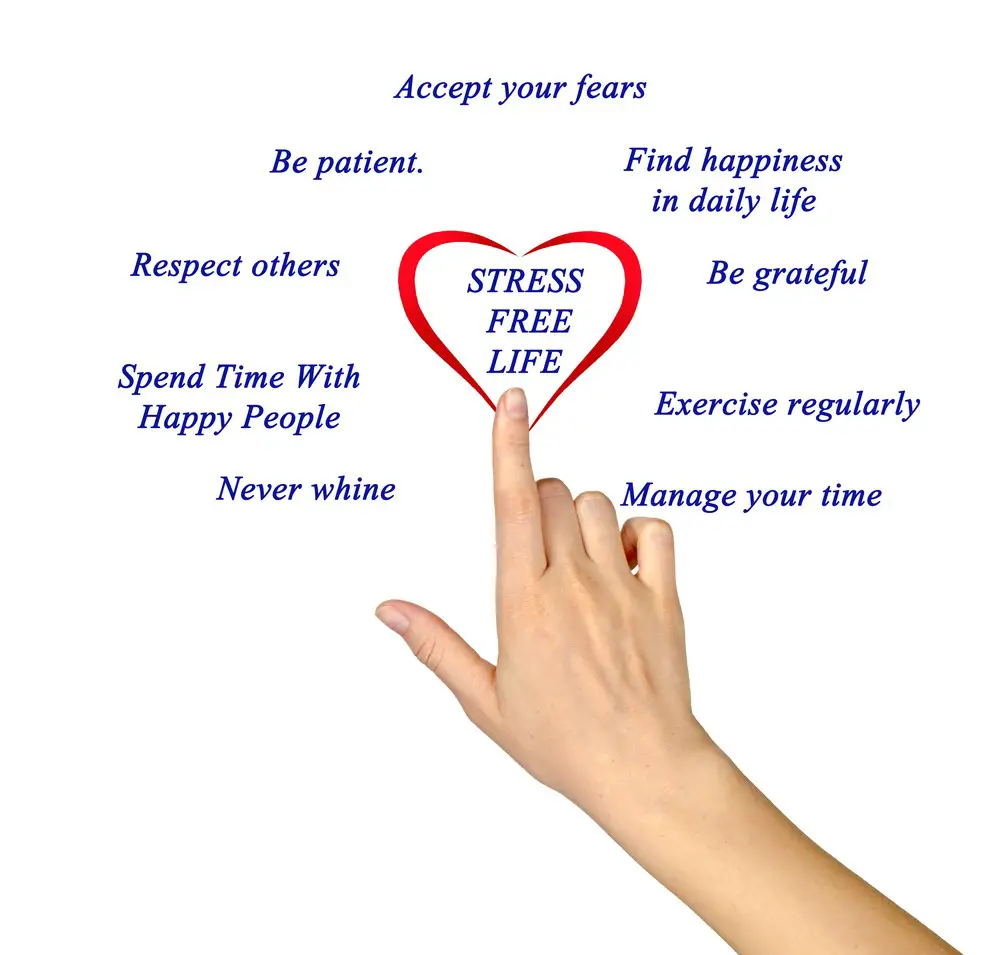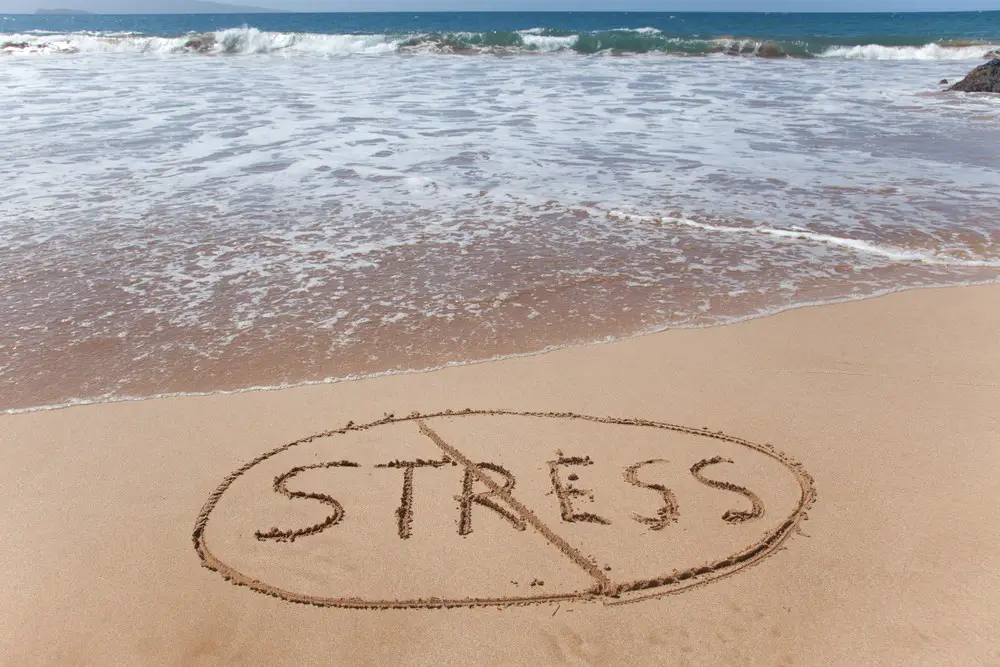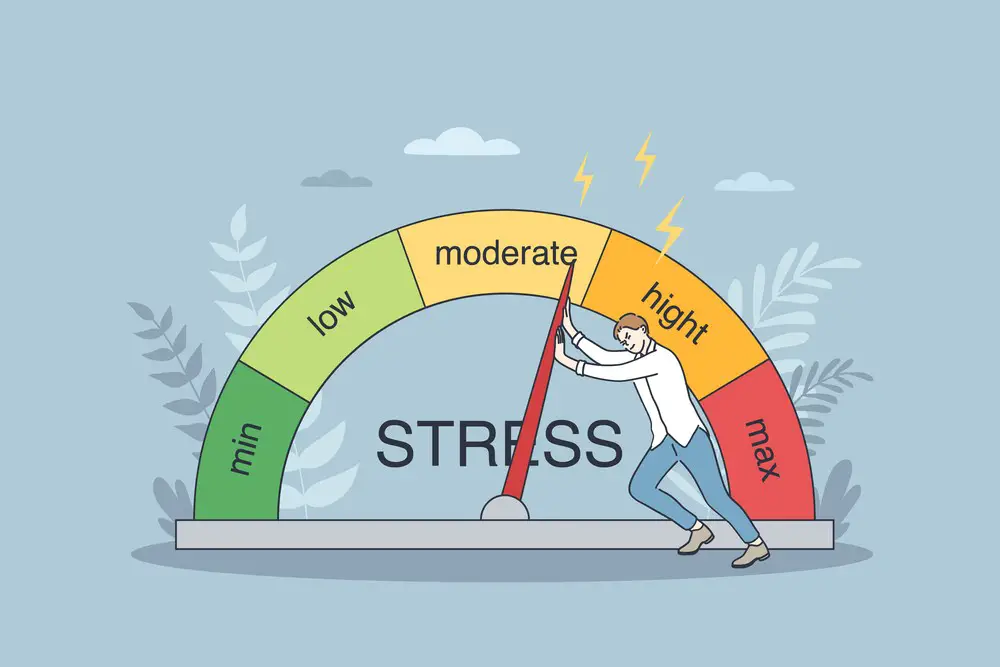You know when you feel stressed, of course. But what exactly is “stress”? Is it physical? Is it emotional? Is it caused by yourself or the environment?
Is it something you can control?
In reality, stress is all these things. Stress is a physical and emotional response to either internal or external factors. Unfortunately, this ubiquity of stress makes it so hard to counter.
 Types Of Stress
Types Of Stress
Are you feeling stressed? There are different types of stress and different methods of dealing with it. A few of the most common types of stress include:
- Emotional stress: Anxiety, anger, and depression are triggered hormonally or chemically, but sometimes they just happen. You lose your job and that’s emotional stress.
- Physiological stress: This is the direct physical response in your body when you’re stressed, which can also lead to (you guessed it) more stress. You might feel exhausted after a stressful day; that’s physiological.
- Cognitive stress: You’re anxious about the things going on. Your thoughts race. You’re depressed about the state of the world. It’s emotional but also intellectual.
- Chronic stress. You always feel stressed, even if there’s no reason. You have gotten used to being stressed, so your body operates on this baseline.
- Work-related stress. Work-related stress is perhaps one of the most insidious forms of stress today, as it’s entirely triggered by work, something everything has to do.
All types of stress can lead to physiological and emotional duress. But knowing what kind of stress you’re experiencing can help. Work-related stress, for instance, is treated through better productivity management techniques and self-care. Physical stress can sometimes be treated through grounding exercises and distraction.
 Causes of Stress
Causes of Stress
Now, let’s look at some of the significant causes of stress. Of course, these aren’t the only causes, but they account for a lot of it:
- Loss of control: One of the most common causes of stress is lack of control. Stress builds when people feel like they can’t influence the world around them. The best way to relieve stress is to feel like you control whatever’s causing it.
- Unpredictability: We deal with stress by finding patterns and sticking to them. When your environment changes, when new things happen, that can trigger a lot of stress as you work through the novelty and establish those patterns again.
- Failure: Perception of failure is a major cause of stress, especially if you internalize it. When people feel like they’re not good enough or they’ve failed to meet their expectations, even though those expectations might be unrealistic, that’s the kind of stuff that causes chronic stress down the line.
- Time: Feeling like you don’t have enough time to do the things you need to do, especially if you’re responsible for many things and people, is a big problem. Time pressure leads to stress and can cause all kinds of problems.
- Relationships: Probably one of the major sources of stress. Marital problems, family problems, even friendship issues. Since we are social, we fear being in the “outgroup,” and we fear rejection.
- Money: Financial security is one of the cornerstones of happiness and mental health. You don’t need a lot of money to be happy, but it’s important to have your basic needs met. Not having enough money can cause stress linked directly to physiological duress.
- Environment: Noise, air pollution, dark skies, and no greenery, these types of environments inherently make people feel more depressed.
- Society: It’s been shown that social media can make people very anxious and depressed. Social media makes people feel they’re doing things wrong or heightens conflict.
The good thing about stress is you can address it from several angles. Some people might start exercising; others might change their diets or spend less time on social media. You can examine your lifestyle and take steps to eliminate sources of stress.
Physical Stress Effects
What are the physical effects of stress? When you perceive a threat or feel stressed, your hypothalamus will start pumping out corticotropin-releasing hormone (CRH). This is what signals your adrenals to produce adrenaline and cortisol.
This process is called the “stress response,” it’s an evolutionary holdover that forces you to either fight the threat or run away from it. The problem is that we live in a relatively safe world, and not everyone has access to healthy ways of dealing with stress. Long-term cortisol exposure can lead to insulin resistance type 2 diabetes, and other metabolic diseases. It can even damage your telomere strands.
Symptoms of Stress
How do you know that you’re experiencing stress? First, there are a few significant symptoms of anxiety that you might note.
- Negative emotions: A general feeling of anxiety, dread, and unease. Everyone feels this occasionally, but if the negative emotions persist or interfere with your daily life, then that’s a problem.
- Mood swings: It’s important to note that not all mood swings are caused by stress. If you’re stressed out, you might notice that your moods are a bit more volatile than they usually would be.
- Exhaustion: If you lack energy, it might be stress-related or something else is going on with your body. Sometimes, something is causing both stress and exhaustion.
- Memory Problems: Experts have noted that chronic stress can cause memory problems. If you’re unusually forgetful, it could be stress.
- Decreased Creativity: When stressed, your brain doesn’t function as well. You might find that your normal creative thought process slows or stops altogether.
As you can see, the symptoms of stress are insidious because they make it hard to function. And being unable to perform is stressful!

How to Alleviate the Symptoms and Sources of Stress
So, now that you know you’re stressed, what do you do about it? Here are some methods of alleviating symptoms and sources of stress.
- Reach out to support networks. Your social support system can help you find ways to deal with stress or help you take a load off.
- Take a vacation. Take some time to yourself to rest and reset. It’s possible that you need a break from the daily grind.
- Examine the reasons behind the stress. Are you working too hard? Are you in a difficult spot? Address these issues directly.
- Get more exercise. Physical exercise is a great way to reduce the stress you experience physically.
You’ll naturally start getting into better habits as you reduce your stress.
Stress Relief Toys
You might also consider investing in a toy that offers sensory feedback. All kinds of anxiety, stress, and fidget toys help you relax and relieve stress. Some popular choices include:
- Squeeze balls. These are filled with water or gel and squeezed to provide a sense of distraction, grounding, and calming.
- Pop balls. These balls are sort of like persistent bubble wrap, allowing you to “pop” each bubble.
- Sand timers. Sand timers are frequently used to time grounding exercises and meditation.
As with everything, it’s important to remember that everyone is different, and what works for some people might not work for others. So it’s worth experimenting with various tools, techniques, and activities to see what helps you reduce stress.

Understanding the Many Faces of Stress ?
First, let’s take a deep dive into what stress truly is—its emotional and physical components and internal and external triggers.
Could Your Stress Be a Red Flag? ?
It’s normal to experience stress, but how can you tell if it’s a severe problem? Signs may include:
- Chronic insomnia ?
- Irritability or mood swings ?
- Physical symptoms like headaches ?
- Avoidance of social activities ??
Setting Goals to Tackle Stress ?
If stress is becoming an issue, set some actionable goals:
- Reduce caffeine or alcohol ?☕
- Set aside “me time” ?
- Engage in physical activities ?♂️
- Speak with a professional ?️?⚕️
Measuring Success ??
Progress may not happen overnight, but here’s how you can track it:
- Improved sleep quality ??
- Increased focus and productivity ???
- A more balanced emotional state ?
 Is It Time to Talk to Someone? 6 Signs You Might Need Therapy ??
Is It Time to Talk to Someone? 6 Signs You Might Need Therapy ??
In a world that’s constantly buzzing with distractions and stressors, it can be tough to recognize when you need help. But the signs are often there, waiting to be noticed. Here are some indicators that it might be time to reach out for professional mental health support:
Persistent Sadness or Anxiety: It could be a sign if you feel down or anxious more often than not, and these feelings affect your daily life. ?️
Social Withdrawal: Pulling away from friends and family, skipping social events, or feeling disconnected from others are warning signs. ?❌
Changes in Sleep Patterns: Whether it’s insomnia or oversleeping, drastic changes in your sleep patterns shouldn’t be ignored. ??
Irritability or Anger: If you find yourself flying off the handle more easily, or little things suddenly make you furious, that’s a flag. ??
Physical Symptoms: Unexplained headaches, stomachaches, or a general decrease in physical stamina could be emotional stress manifesting physically. ??
Troubling Thoughts: If you have thoughts about harming yourself or others, seek help immediately. These are urgent signs that you need professional intervention. ?
Goals and How to Recognize Progress ??
Setting Achievable Goals: Whether improving your mood, having better social interactions, or managing stress, having tangible goals can guide your therapy journey.
Track Your Mood: Make a habit of noting your mood and thought patterns. You’ll begin to notice improvements or triggers that need to be addressed. ?
Celebrate Small Wins: Have you finished a project you’ve been postponing? Manage to go out and socialize? These small victories mean progress. ?
Remember, therapy is a personal journey that unfolds differently for everyone. The key is to stay committed and be honest with yourself and your therapist. Good luck! ✨
BetterHelp: My Go-To for Stress Management ??
I’ve been using BetterHelp for stress management. As an affiliate, I highly recommend it. Video sessions, phone calls, or messaging—whatever suits you. I prefer face-to-face video.
FAQs – Most Common Questions About Stress
The Unwritten Chapters of a Resilient Soul: My Journey Through Peaks and Valleys
Bio: Surviving the unimaginable tragedy of 9-11, working from home while raising kids, and now navigating a complex custody battle, my life is a tapestry of highs and lows. I’m a therapy veteran, recently finding a lifeline in BetterHelp. Through Lexapro and long, meditative beach walks, I strive to keep my mental health in check. ??♂️ I put pen to paper as a therapeutic exercise to guide others in conquering their mental health challenges and dealing with narcissistic partners. Through my legal site, I offer insights to those fighting for justice in family courts. Here’s to the belief that anyone can turn the page to a happier chapter. ?✨
- Stress Relieving Benefits of Spending Time in a Garden: Interesting Facts to Know - February 16, 2024
- How to Reduce Anxiety Immediately: Quick and Effective Techniques - February 15, 2024
- Can Stress Cause Bloating? Understanding The Link Between Stress And Digestive Issues - February 15, 2024
This site contains affiliate links to products. We will receive a commission for purchases made through these links.


 Types Of Stress
Types Of Stress Causes of Stress
Causes of Stress Is It Time to Talk to Someone? 6 Signs You Might Need Therapy ??
Is It Time to Talk to Someone? 6 Signs You Might Need Therapy ??
